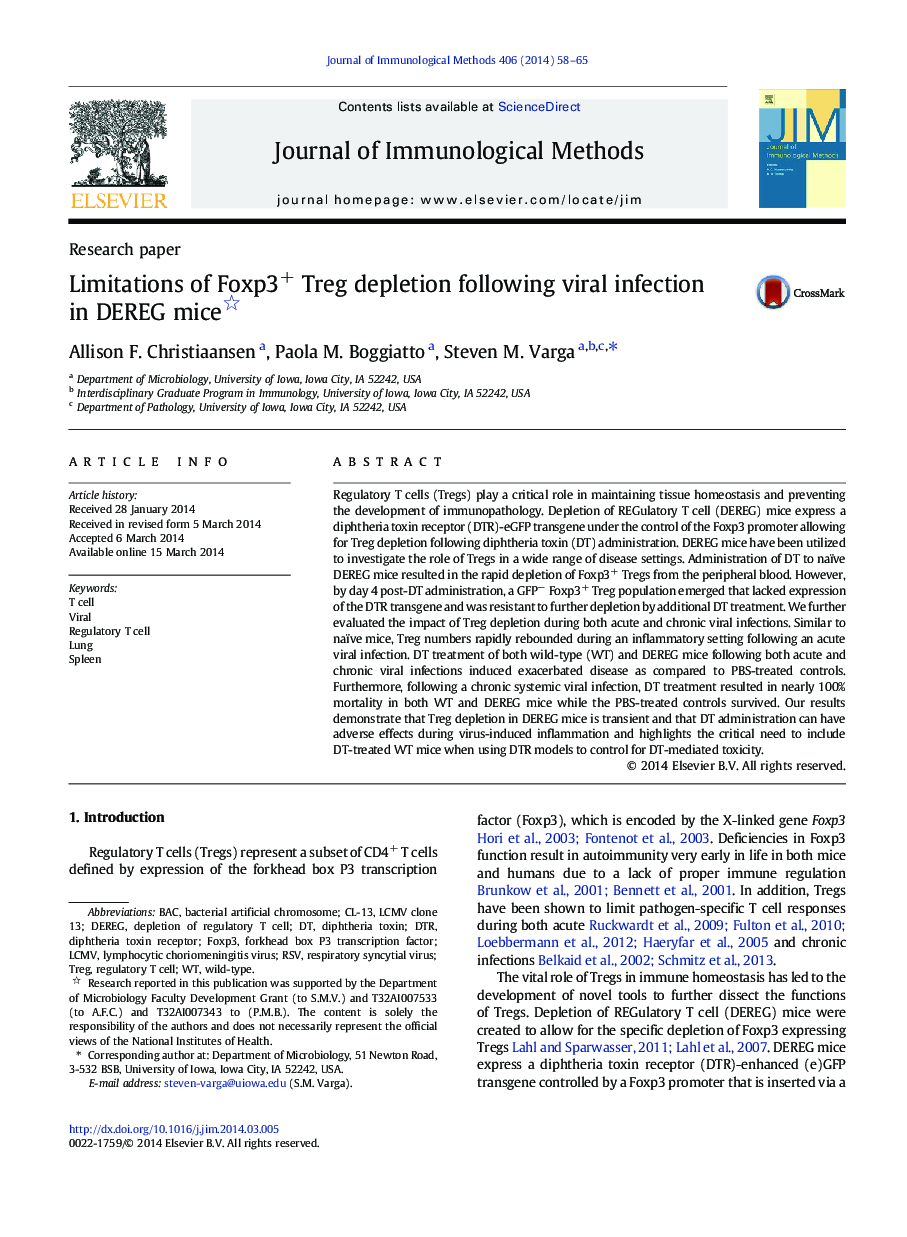| کد مقاله | کد نشریه | سال انتشار | مقاله انگلیسی | نسخه تمام متن |
|---|---|---|---|---|
| 2088210 | 1545703 | 2014 | 8 صفحه PDF | دانلود رایگان |

Regulatory T cells (Tregs) play a critical role in maintaining tissue homeostasis and preventing the development of immunopathology. Depletion of REGulatory T cell (DEREG) mice express a diphtheria toxin receptor (DTR)-eGFP transgene under the control of the Foxp3 promoter allowing for Treg depletion following diphtheria toxin (DT) administration. DEREG mice have been utilized to investigate the role of Tregs in a wide range of disease settings. Administration of DT to naïve DEREG mice resulted in the rapid depletion of Foxp3+ Tregs from the peripheral blood. However, by day 4 post-DT administration, a GFP− Foxp3+ Treg population emerged that lacked expression of the DTR transgene and was resistant to further depletion by additional DT treatment. We further evaluated the impact of Treg depletion during both acute and chronic viral infections. Similar to naïve mice, Treg numbers rapidly rebounded during an inflammatory setting following an acute viral infection. DT treatment of both wild-type (WT) and DEREG mice following both acute and chronic viral infections induced exacerbated disease as compared to PBS-treated controls. Furthermore, following a chronic systemic viral infection, DT treatment resulted in nearly 100% mortality in both WT and DEREG mice while the PBS-treated controls survived. Our results demonstrate that Treg depletion in DEREG mice is transient and that DT administration can have adverse effects during virus-induced inflammation and highlights the critical need to include DT-treated WT mice when using DTR models to control for DT-mediated toxicity.
Journal: Journal of Immunological Methods - Volume 406, April 2014, Pages 58–65